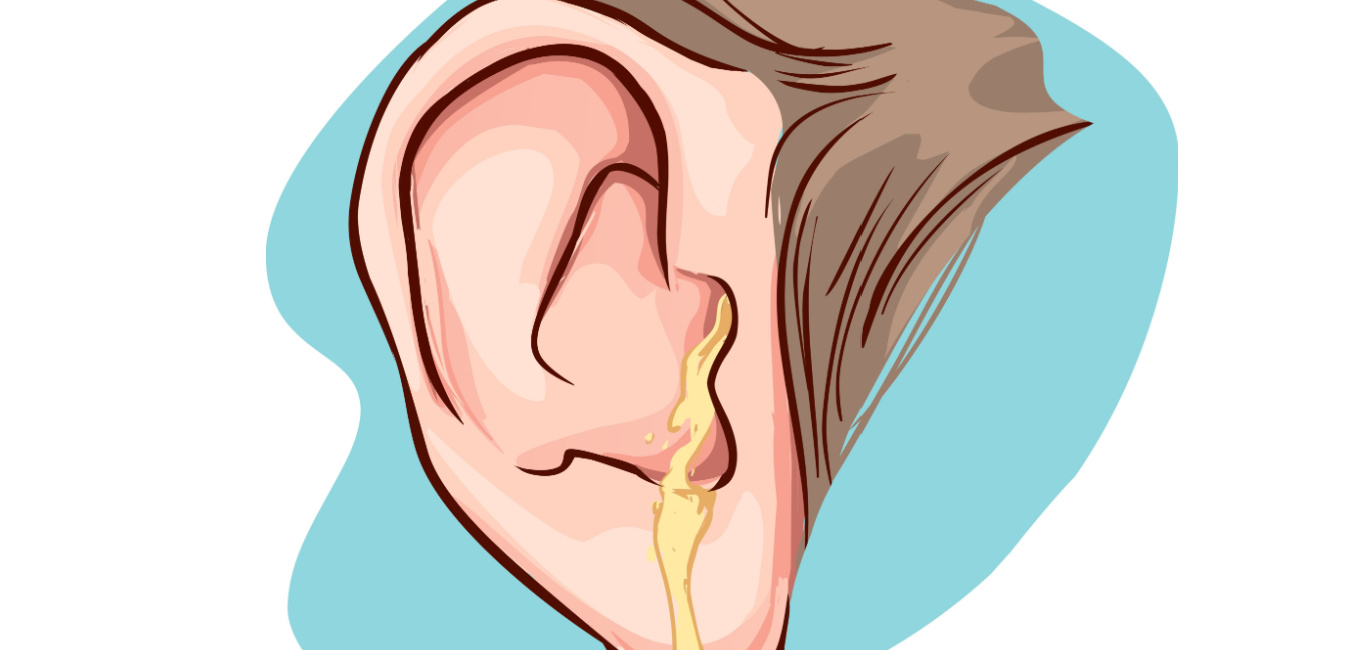
Swimmer’s ear, also known as otitis externa, is a common infection of the outer ear. “The outer part of the ear, which includes the ear lobe, ear canal, and eardrums, gets affected when this infection happens,” says Dr Ria Emmanuel, an ENT consultant specialising in allergy and immunotherapy at Narayana Multispeciality Hospital, Bengaluru.
Why is it called the swimmer’s ear?
Caused by water getting trapped in the ear canal and providing a favourable environment for bacteria or fungi to multiply, swimmer’s ear is common in the summers when people are more likely to go swimming. But this is not the whole story; there are other factors at play.
Anurag’s story…
Anurag Singha, 42, from Delhi, had been swimming from a very early age. “I had been swimming for as long as I could remember. I enjoyed swimming regularly which helped me be fit and active.”
A few years ago, Singha was diagnosed with diabetes. “I continued with swimming thinking that it would keep me fit and keep my diabetes at bay. But little did I know that it could lead to a severe infection,” he says.
Recently when water entered his ear during one of his daily practices, he thought that it would drain out as naturally as it had always done. “But over the days, I started experiencing pain and discomfort in my right ear, along with itching,” says Singha.
The doctor told him that there was an outer ear infection as the water went inside it.
His compromised immune system meant the infection went further into his ear canal, making his symptoms worse. His doctor gave him antibiotic ear drops to minimise the swelling and get the infection under control. He also cautioned Singha against going in the water till his condition had fully improved.
Symptoms
Swimmer’s ear symptoms, as described by Dr Mahesh Meda, a visiting consultant in the department of ENT (ear, nose, and throat) at Narayana Multispeciality Hospital in Bengaluru, include:
- Minor discomfort to severe, stabbing pain.
- Itching and a desire to scratch or touch the afflicted ear.
- The outer ear canal may show signs of swelling, redness, and inflammation. The skin around the earlobe and elsewhere can also be affected.
- Abnormality in ear drainage.
- Hearing loss or muffled hearing may occur because of swelling and blockage of the ear canal.
- The affected ear can be sensitive to touch. Thus, using headphones, earplugs, or even resting the head on a cushion may cause discomfort.
- A fever (in extreme cases) can occur if the infection progresses or spreads beyond the outer ear.
Causes
Dr Emmanuel, lists out the common causes of swimmer’s ear:
- Infection: Swimmer’s ear can be caused by bacterial or fungal infections of the outer ear canal.
- Non-infectious causes: Swimmer’s ear can also occur without an infection, particularly in individuals with narrow ear canals, anatomical issues of the ear, or excessive wax build-up.
- Allergies or sensitivities: Some may develop the condition due to an allergic reaction or sensitivity to certain chemicals or contaminants in the water, such as chlorine.
- Injury or trauma: Injury or trauma to the ear, including damage to the ear drum, can increase the risk of developing swimmer’s ear. This can occur from using objects like cotton swabs or hairpins to clean or scratch the ear.
- Immunocompromised individuals: People with weakened immune systems, such as those undergoing cancer treatments, dialysis, or those with diabetes, may be more susceptible to developing swimmer’s ear.
Who is at risk?
People of different age groups and those with varied risk factors are susceptible to developing swimmer’s ear. “Children are particularly prone due to their narrower and shorter ear canals, which make it easier for water to get trapped and infections to develop,” says Dr Emmanuel.
People who have had ear surgery may also be at a higher risk, says Dr Meda. Those with naturally narrow ear canals or dermatological diseases like psoriasis or dermatitis are at a high risk of developing Swimmer’s ear, adds Dr Emmanuel. People with a family history of asthma or allergies may also be at a higher risk.
Why people with skin issues and allergy are more prone to swimmer’s ear?
“The skin lining of the ear canal has a natural chemical balance that is maintained by ear wax, which helps to maintain an acidic pH,” says Dr Emmanuel.
The presence of earwax and the healthy lining of the inner skin are essential for maintaining the well-being of the ear canal. Dr Emmanuel explains that people who have skin problems and allergies often encounter dryness and excessive shedding of skin. This can weaken the protective layer of the inner skin, making the ear canal more susceptible to infections such as swimmer’s ear.
If left untreated
If left untreated, swimmer’s ear can lead to various complications. Dr Emmanuel says that the infection originating in the ear canal can spread to the outer ear, which consists of cartilage, resulting in a condition called perichondritis (inflammation of the cartilage which is painful). “The infection can also extend beyond the skin and cartilage, causing cellulitis, an infection of the surrounding skin and tissues,” she says. In severe cases, if the infection continues to spread, it can even affect the underlying bone, leading to bone infection.
Treatment
According to Dr Emmanuel and Dr Meda, the treatment for swimmer’s ear generally involves:
- Proper ear cleaning: The first step is to clean the affected ear canal to remove any excess water, debris, or discharge.
- Topical medications: Prescription-strength eardrops help to eliminate the infection or reduce inflammation.
- Medicated wick: In some cases, a medicated wick may be inserted into the ear canal.
- Pain relief medication: Pain relievers can help alleviate the pain.
- Oral antibiotics: If the infection is severe and has spread beyond the ear canal, experts prescribe antibiotics.
Prevention
Swimmer’s ear can be a painful condition, but one can take a few preventive measures to avoid it. Dr Meda and Dr Emmanuel suggest the following methods:
- Be cautious if you have a history of ear wax issues or previous ear infections. Use earplugs or a swim cap to prevent water entering the ears.
- Avoid fiddling with your ears or inserting objects like cotton swabs or hairpins into the ear canal, as this can irritate the skin and disrupt the natural protective barriers.
- Avoid using over-the-counter ear drops or medications without consulting an expert if you have allergies or sensitivities. It may cause a reaction in the ear and worsen the condition.
- Dry your ears by gently dabbing them with a soft towel, after swimming or taking a shower. Tilt your head to each side to help water drain out naturally.
















